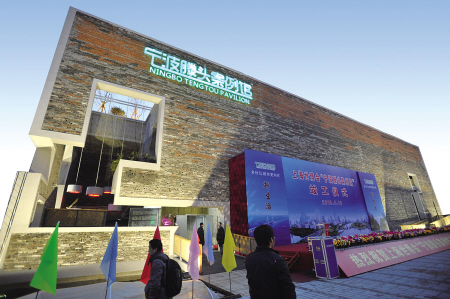Tiny, mighty Tengtou
Editor's notes: Urbanization creates problems though, it's an unavoidable trend. This series of five stories try to discuss ideal modes for future development of Chinese cities and how people can create better cities in light of the problems faced by them. Following is the fourth of this series, telling the growth story of an 800-people village.
 |
|
Tengtou Pavilion |
Next to the exhibits of numerous metropolises in the Urban Best Practices Area (UBPA) is that of the tiny village of Tengtou. Located in Fenghua of east China's Zhejiang Province, Tengtou is the only village to have an exhibit in the UBPA. Compared to world-class cities like Barcelona, Paris and Madrid, Tengtou is relatively insignificant. The village covers just about 2 square km, and is home to just over 800 people.
|
In this series: •Growing pains |
Story of growth
Thirty years ago, Tengtou was an impoverished village. Since China began implementing its policy of reform and opening to the outside world in 1978, however, Tengtou has rapidly developed industrial enterprises while respecting the environment.
A business group named after the village comprises quite a few companies doing business in the areas of agriculture, industry and trade. One of the enterprises, the Aiyimei Garments Group, has had its products exported to more than 30 countries.
The group's landscaping business, Tengtou Gardening Co., Ltd. is one of the country's biggest landscaping companies. It provided gardening services for the 2008 Beijing Olympics and the Shanghai World Expo.
Tengtou has expanded its business dealings to the whole country over the last few decades. Its real estate company has developed housing projects in Hangzhou, the capital city of Zhejiang Province and Xuancheng in Anhui Province.
Tengtou has also aggressively developed its tourism industry, which has an ecological and recreational focus. In 2009, Tengtou's tourism industry earned over 20 million yuan (about $3.5 million).
 0
0 






